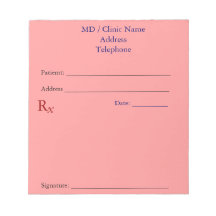It’s quick and simple to evaluate a patient’s medical and family history to determine eligibility but, as responsible providers, more must be done. Medical testing for contraindicated conditions or risks to assess safety and appropriateness is not yet a prerequisite when prescribing medications like Ozempic, Wegovy, or Mounjaro, so we must close that gap. A failure to test to determine whether or not a patient should be prescribed or continue to use medications like these can mean we fail to spot significant health risks, which can result in serious consequences for individuals who aren’t being evaluated thoroughly enough.
Before starting weight management medications, diagnostic lab testing establishes a baseline understanding of patient health for comparison throughout a treatment plan. According to the CDC, over 70% of today’s medical decisions are dependent on laboratory testing. In diabetes management, which is what these medications often address, testing throughout treatment is important for monitoring blood sugar levels and confirming that medication is working effectively. Monitoring throughout treatment also enables providers to adjust treatment plans as needed and prevent serious complications that can arise from unchecked conditions or unexpected medication interactions.
While a patient is undergoing treatment for weight management, it’s important to regularly conduct lab testing to ensure the healthy function of all organs that could potentially be affected by these medications. For example, the kidneys and liver play critical roles in metabolizing and excreting medications. Certain compounds commonly used in drugs can cause liver damage or kidney dysfunction, stemming from diabetic retinopathy complications, hypoglycemia, or acute kidney injuries. Running kidney and liver health panels (eGFR, UACR, protein, albumin, bilirubin, and liver enzymes) allows providers to track patient data over time and adjust treatment as needed.
The pancreas, gallbladder, and heart may also be affected by certain medications. For example, taking Ozempic may cause some patients to experience heart palpitations and debilitating gastrointestinal side effects. If patients have stomach pain, fever, or jaundice, they should immediately let their provider know, as these symptoms can be a sign of pancreatitis or gallbladder problems, among other issues. Failing to conduct follow-up diabetes and heart health panels (HbA1c, Glucose, total cholesterol, etc.) to monitor changes over time could negatively impact patient health. Regular testing is essential for providers to oversee patient health and confirm panel levels are well-controlled.
As trusted partners in patient care, providers must incorporate testing processes to ensure safety. Lab testing is key to understanding a patient’s health profile, which has implications for their ability to manage certain medications and verifies that the outcomes of therapeutic regimens are what provider and patient expect.
We are living in a time when patients are being proactive about their health. As clinicians, our job is to guide them in their journey, follow evidence-based treatment plans and adhere to best-practice standards—including encouraging patient testing before and while taking medications.
15% Off Medical Practice Supplies
VIEW ALL
 Manual Prescription Pad (Large - Yellow)
Manual Prescription Pad (Large - Yellow) Manual Prescription Pad (Large - Pink)
Manual Prescription Pad (Large - Pink) Manual Prescription Pads (Bright Orange)
Manual Prescription Pads (Bright Orange) Manual Prescription Pads (Light Pink)
Manual Prescription Pads (Light Pink) Manual Prescription Pads (Light Yellow)
Manual Prescription Pads (Light Yellow) Manual Prescription Pad (Large - Blue)
Manual Prescription Pad (Large - Blue)__________________________________________________
Appointment Reminder Cards
$44.05
15% Off
$56.30
15% Off
$44.05
15% Off
$44.05
15% Off
$56.30
15% Off













No comments:
Post a Comment